Uncategorized
-
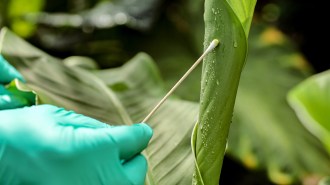 Animals
AnimalsA new DNA leaf swab technique could revolutionize how we monitor biodiversity
Simple swabs of just 24 leaves in Uganda’s Kibale National Park provided a genetic snapshot of 52 animals in the tropical forest.
-
 Astronomy
AstronomyActive supermassive black holes may be rarer than previously thought
A dearth of rapidly growing black holes in new James Webb telescope data raises questions about how these behemoths grow and influence their galaxies.
-
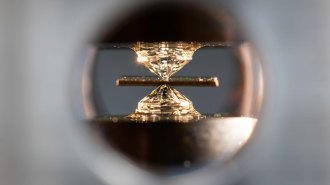 Physics
PhysicsSuperconductor research surges forward despite controversy over stunning claims
After retractions from Ranga Dias’ group, high-pressure physicists are feeling the squeeze, fearing the controversy will tarnish other research.
-
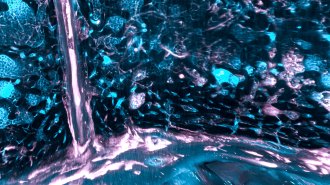 Neuroscience
NeuroscienceBone marrow in the skull could be used to monitor Alzheimer’s, MS and more
New observations of skull cell signals and skull tunnels suggest bone marrow there could be used to monitor neurological diseases.
-
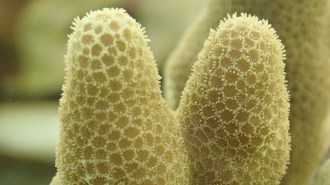 Animals
AnimalsAdult corals have been safely frozen and revived for the first time
Chunks of living corals could be frozen for safekeeping and revived later to restore reef ecosystems that are withering in warming seas.
By Nikk Ogasa -
 Earth
EarthHow thunderstorms can spawn damaging ‘downbursts’
Powerful winds called downbursts are not the same as a tornado, but the damage they cause can be similar — and can hit with little warning.
By Skyler Ware -

-

Sewers provide solutions to public health data gaps
Editor in chief Nancy Shute discusses how scientists are looking to wastewater to track COVID-19 and other diseases.
By Nancy Shute -
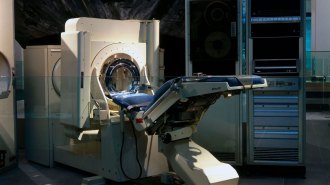 Health & Medicine
Health & Medicine50 years ago, X-rays provided an unprecedented look inside the brain
CT scans can now image the whole body and are even used in other scientific fields such as archaeology, zoology and physics.
-
 Health & Medicine
Health & MedicineA classical lullaby helped reduce newborns’ pain during heel pricks
Methods to lessen pain for newborns during routine procedures include cuddling and a dose of a sugar solution. Music also appears promising.
-
 Climate
ClimateArctic sea ice may melt faster in coming years due to shifting winds
A complex dance between Arctic wind patterns and the Atlantic has limited the flow of warmer water north in recent years. That may be about to change.
-
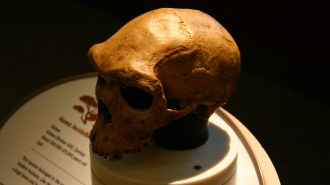 Anthropology
AnthropologyExtreme cold may have nearly wiped out human ancestors 900,000 years ago
Ancestral populations had rebounded by about 800,000 years ago, heralding the evolution of people today, a contested DNA analysis suggests.
By Bruce Bower